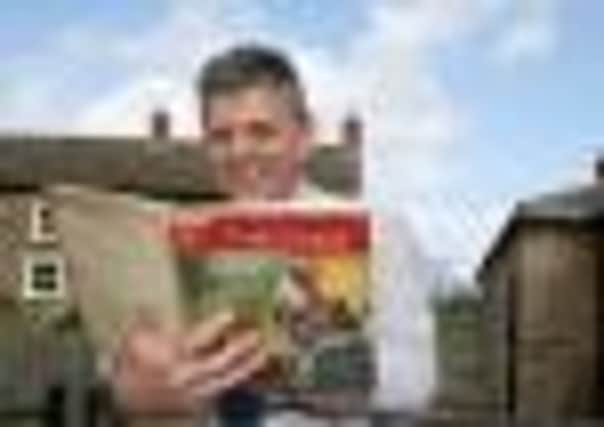From energy and optimism to a time when farmers are forgotten


Looking back to a time when horses and men still worked the fields in large numbers, it would be easy to assume life had a slower and more mundane rhythm.
The year 1952 was in fact a time of great energy and optimism, stimulated not just by the new Queen, but by the efforts of the country to recover from the war.
Advertisement
Hide AdAdvertisement
Hide AdFarmers and land managers were contributing to this. Even though the wartime emphasis on self-sufficiency, rather than simply producing as much as possible, meant there was still some rationing, these were expansionist times.
Years of pre-war under-investment in British farming had still to be overcome, and the preamble to the 1947 Agriculture Act said we should produce: “such part of the nation’s food and other agricultural produce as in the national interest it is desirable to produce in the United Kingdom.”
In 1952 this was interpreted as “produce as much as possible.”
Yet, even then we realised we could no longer take for granted that there would always be enough food for people to buy.
Advertisement
Hide AdAdvertisement
Hide AdOver the previous 60 or 70 years, great stretches of fresh land in the New World were being made into farms.
By 1952, the farmlands of the world were no longer increasing.
People felt nearly all the suitable land had already been brought into use, and much of it was producing less than it did because of past mismanagement.
Many countries had had to start what were called “conservation” schemes to try to save the fertility of the land and prevent the soil from “erosion” by heavy rain or strong winds.
Sound familiar?
Advertisement
Hide AdAdvertisement
Hide AdThe following extracts from a letter that appeared in the Farmer & Stockbreeder journal in 1952 sounds equally familiar: “Many who discuss National Parks, footpaths and semi-suburban ‘green belts’ and similar subjects from the standpoint of townsmen seem to be un-informed or ill-informed.
“Even if there were no economic, social or strategic reasons for the maintenance of agriculture, the cheapest way, indeed the only way, of preserving the countryside in anything like its traditional aspect would be to farm it. The real point is, the countryside must be alive, and life means work, movement and change.”
Other than Friesian cattle and the recently introduced Landrace pigs, there were no imported breeds. Although mechanisation and the introduction of electricity across our northern dales were bringing more opportunities – much as broadband should be doing today – many field operations were still directed by the flick of a trace or the pull of a heavy lever. Computers were the size of a small barn, and satellites weren’t being used even by governments in 1952.
Society’s demands have changed. Today we’re concerned with preventing any more permanent pasture being ploughed up, but the 1952 Ploughing Grants offered close to £700/ha in today’s money to do just that.
Advertisement
Hide AdAdvertisement
Hide AdIt wasn’t until the 1970s, after our entry into the Common Market, that the many direct grants and subsidies ended, including those for work such as drainage and hedgerow removal that we are now paid to reverse. The economic significance of agriculture has reduced, the diversity of the rural economy broadened, and the competing pressures on land use continued to increase.
We live in a crowded country without the luxury of space, where some have to live, some need to work, and some want to play. We have social, economic and environmental conflicts over food production, water supplies and flooding, carbon storage, renewable energy, waste and biodiversity.
The land products we need are now more than simply food. The UK’s output is relatively small when the world’s food production is reckoned up, yet the role of our farmers and land managers is increasingly important and we should value our home grown land products all the more.
With the world’s population increasing, and its natural resources diminishing, economic and political pressures may also affect other countries’ ability or desire to feed us. Farming remains the lifeblood of rural areas.
Advertisement
Hide AdAdvertisement
Hide AdAt some time during our Queen’s reign, society started to forget that farmers were there and others even actively tried to discourage or prevent what they do. That must change to encouragement and support. Society must allow farmers to evaluate new techniques and technologies.
My copy of the Wonder Book of the Farm, published in the year of the Coronation, describes farming as “the most important occupation of mankind. We must eat to live; and we must farm before we can eat.”
Farming, and land management in general, is no less important now.
Douglas Chalmers is the North policy and public affairs director of the Country Landowners Association.